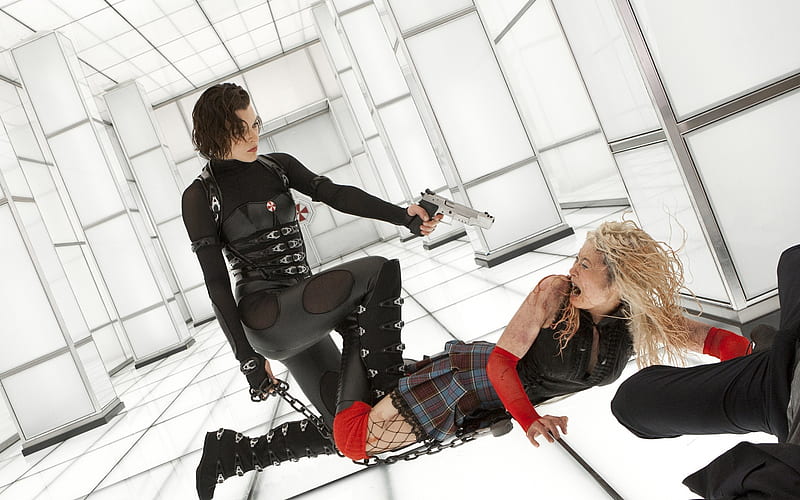"Alice no longer fights to save mankind — she fights to reclaim memory, identity, and herself."
In a delirium of chaos where reality and illusion blur, Alice awakens inside a subterranean Umbrella facility — a place where memories are torn apart, identities manipulated, and truth reprogrammed like lines of corrupted code. Resident Evil: Retribution doesn’t merely continue the franchise’s explosive survival saga; it plunges deep into a technological labyrinth of fractured selves, where each clone is haunted by a ghost it doesn’t understand. Milla Jovovich returns as a more ferocious, more wounded, and more skeptical Alice — as her most dangerous enemy may just be the replicated echoes of herself.

This time, the backdrop isn’t crumbling cities but a simulated global testing ground: Tokyo, Moscow, New York… all synthetic arenas designed to unleash bio-weapons on manufactured populations. Within this maze, Alice doesn’t fight alone. Familiar faces resurface — sometimes as allies, sometimes as reprogrammed shells — forming a world where friendship blurs into betrayal and trust can be hacked like faulty software. Every battle is more than just bullets and blood — it’s a question: who is real? And who is the replica?

Paul W.S. Anderson bares his ambition here, orchestrating a violent symphony of digital warfare and existential paranoia. The film feels like a nightmare crafted by the hands of a gamer but seen through the eyes of someone who doubts everything. Slow-motion sequences amid fire and water, between mutants and human biology, play like the final requiem for a species that traded its soul for illusion and control.

Resident Evil: Retribution serves as a chilling warning of a future where identity is cloned, emotion replic
ated, and memory no longer belongs to anyone. In this fractured world, Alice no longer fights for humanity — she fights to remember who she truly is.

-1755055248-q80.webp)
-1754450659-q80.webp)
-1757074832-q80.webp)